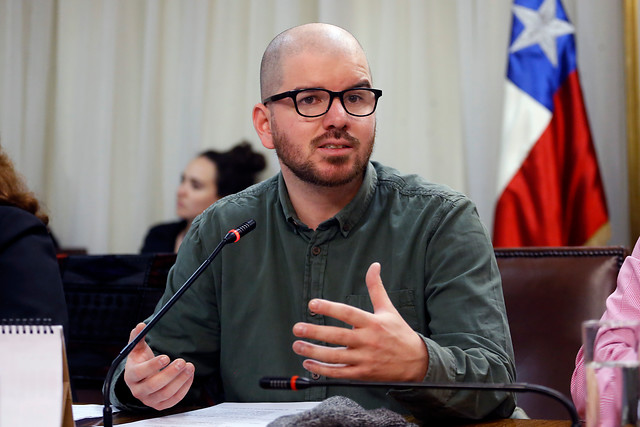RIO DE JANEIRO, BRAZIL – As planned, yesterday began the ministerial coordination meetings for the handover from the Piñera administration to that of the President-elect, Gabriel Boric. The activities began in La Moneda with the Secretaries of State that make up the political committee, in the framework of which the priority that the tax and pension reform will have in the next government was confirmed.
The future Minister of the General Secretariat of the Presidency (Segpres), Giorgio Jackson, met with his counterpart Juan José Ossa. The meeting was also attended by Undersecretaries Máximo Pavez and his successor Macarena Lobos.
Read also: Check out our coverage on Chile
After the meeting, and in the midst of the press inquiries, Jackson affirmed that the tax issue is one of the “central pillars” on which they base the possibility of achieving their government program and with this they count on being able to address the social demands.

“We want to have permanent income for permanent expenses”, emphasized the future Secretary of State. And, above all, because there is an important fiscal burden, he added, “there is also a commitment to fiscal convergence, and we want to put emphasis on tax reform in this first period and at the beginning of the government and we have to coordinate this together with the Minister of Finance”.
According to what he said, they are already working on the pre-legislative part, but he anticipated that they will have some conversations with the civil society.
In this regard, he recalled that the President-elect has already met with SMEs and business groups to whom “he has commented that this will be a priority agenda, precisely to deploy the government program”.
The other legislative priority will be pensions, Jackson anticipated: “We have a discussion on how the State is going to guarantee some social rights, which is being carried out in the Constitutional Convention and, at the same time, we are committed to a phase of social dialogue to have a pension project that guarantees a dignified old age”.
The future minister informed that the executive secretary of the Constitutional Convention, Matías Cox, was confirmed in the position, who is in charge of the coordination between the Executive and the constituent through the Segpres.
MIGRATIONS AND ARAUCANÍA
The situation also marked the bilateral dialogue. In the case of the meeting of the Ministers of the Interior, Rodrigo Delgado, and his successor, Izkia Siches, the agenda was marked by the migratory situation on the northern border and also the attacks in La Araucanía.
Thus, the former president of the Medical Association informed that meetings have been scheduled with governors and mayors of the north and communities “to be able to adjust the continuity of the state of emergency” and to see “eventual corrections, improvements and also the implementation of the Migration Law and its regulations”.
Regarding what is happening in the south, he indicated that they expect to talk in the second week with local authorities, victims of violence, community members, organizations, ancestral authorities, “all those actors that allow us to visualize how to walk towards long-term solutions and in peace”, he said.
In the case of the meeting between the spokesperson ministers, Jaime Bellolio and his successor, Camila Vallejo, the current Secretary of State gave her six folders with information, which was valued by the also deputy.
During the meeting, they also discussed the universe of 101 positions to be filled by the Segegob, between honorary and contract positions.
SOCIAL EMPHASIS
The bilateral meeting of the Ministry of Social Development between the future Minister Jeanette Vega and the current Minister Karla Rubilar, focused on the issues of social aid to the population derived from the pandemic and a series of programs.
Vega explained that for her administration she has set as axes “to have a network of care throughout life that translates into benefits and concrete benefits to citizens, particularly the most vulnerable groups”; “to re-look and advance the instruments that allow us to characterize people socioeconomically” and to move towards the implementation of the National Service for Children.

